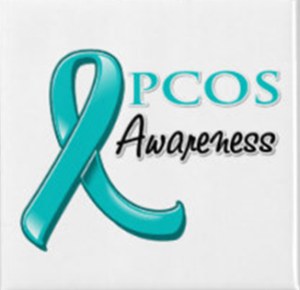New PCOS treatment fully reverses the symptoms of PCOS: Of the PCOS affected women that received the treatment, 94% reported positively.
Polycystic Ovarian Syndrome (PCOS) is one of the most common endocrine disorders affecting women. Reportedly, around 10 per cent of the women are affected with PCOS. Women with PCOS have various symptoms, which may be cosmetic, such as acne, facial hair and pigmentation, gynecological such as irregular periods, infertility and recurrent pregnancy loss, or endocrinological such as obesity, insulin resistance and diabetes. PCOS is not a disease but a syndrome of multiple symptoms and signs and every woman might not have all the possible symptoms.
Till now there is no comprehensive treatment for the management of PCOS (Mind you, PCOS is not curable, whatever anyone says!). Doctors generally give a concoction of birth control pills, advice on lifestyle changes, diet plans, diabetes medications and as a last resort, surgery.
New PCOS treatment fully reverses the symptoms of PCOS: The symptoms of polycystic ovary syndrome (PCOS) usually become apparent in your teens or early twenties. Not all women with PCOS have all of the symptoms. Each symptom can vary from mild to severe. In many women, the only symptoms are menstrual problems or a failure to conceive.
Common symptoms of PCOS include:
- Irregular periods or complete lack of periods
- Difficulty getting pregnant (because of irregular ovulation or failure to ovulate), recurrent miscarriage
- Excessive hair growth (hirsutism) – usually on the face, chest, back or buttocks
- Weight problems – being overweight, rapid weight gain, difficulty losing weight
- Thinning hair and hair loss from the head
- Oily skin or acne
- Depression and mood changes
- Multiple, small cysts in the ovaries
New PCOS treatment fully reverses the symptoms of PCOS: Most women with PCOS grow many small cysts on their ovaries. That is why it is called polycystic ovary syndrome. The cysts are not harmful but lead to hormone imbalances.
Chemical Resources is a pioneer in innovative and natural dietary supplements. It has 13 patents for various innovations and the products have been clinically evaluated for safety and efficacy.
Furocyst is one such dietary supplement from Chemical Resources for management of PCOS. Furocyst is an innovative product (extracted and
developed through a novel & innovative U.S. patented process) involving separations of active ingredients from the natural plant without affecting chemical properties of the active fractions.
It has been clinically evaluated to prove its safety and efficacy.
Efficacy conclusions
➲ Fenugreek seed extract caused significant reduction in the ovary volume.
➲ 46% of the study population showed reduction in the cyst size.
➲ 36% of the study population showed complete dissolution of the cysts.
➲ 12% of the patients got pregnant.
➲ 71% of the patients reported regular menstrual cycle on completion of the
treatment.
➲ Overall 94% of the patients reported positively or got benefited from the fenugreek extract dosing.
Safety conclusions
➲ Keeping hematological and biochemical results in view, investigational product was safe for consumption.
➲ No significant change in liver function tests was observed.
➲ No significant change in renal function tests was observed.
Mechanism of Action of Furocyst:
➲ Increase insulin sensitizing activity & peripheral utilization of insulin thus correcting increased androgen hormones, which are responsible for PCOS.
➲ Bring down the Hypercholesterolemia.
Furocyst is a one of its kind product, which offers a comprehensive solution for management of PCOS. It is a natural plant-based product and thus, has no known side effects, unlike other existing available options for PCOS.




